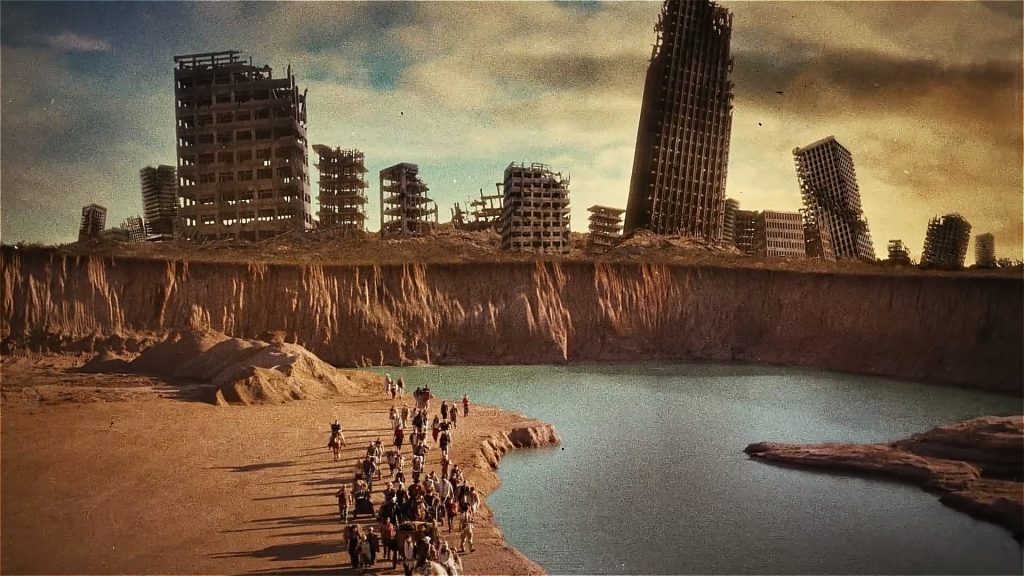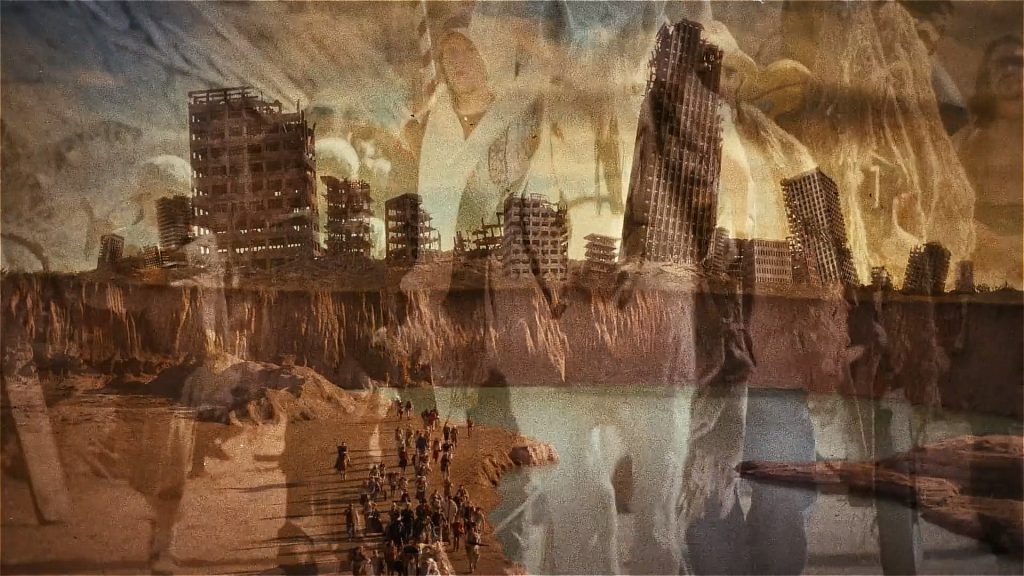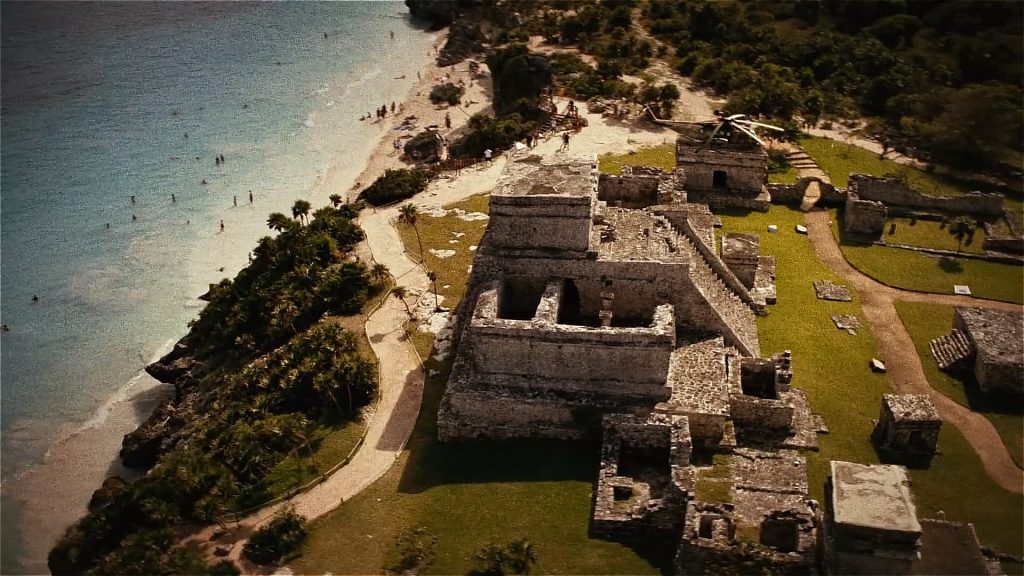The movie by Robert Rodriguez from 2007 is definitely not a climate narrative. Rather “Planet Terror“, a true retro flick, picks up a theme popular in the 1970s: anihilation through some mysterious chemical experiment gone havoc. Still I found the closing images worth sharing here, as they are not only quite impressive visually, but also because they combine narratives and traditions that are important for coastal climate adaptation.
Set in the US state of Texas the story eventually culminates in a biblical exodus of the last survivors from the barren land called USA to the promised land – called Mexico.


One of the central characters, a Latino in the US himself, gives the crucial advice: “You’ll be able to defend yourselves with the ocean in the back.”
This direction of the exodus is of course a critical comment and reversal of the image of the USA as a promised land for Mexican migrants. But the movie also references the ocean shore in particular as a mythical place of refuge. This might seem like an odd concept, considering that living by the sea actually is living with the proverbial “back against the wall”. But it resonates with the attraction coastal living holds in our culture. This has not always been the case – quite to the contrary. There is historical argument that coastal settlements at least in the Global South are a colonial heritage.

Rodriguez’ garden of Eden combines an ocean idyll with reference to ancient Inka civilisations and a military base, as can be seen in the image above. Obviously these things don’t really match. It’s a very ambivalent and complex collage, very dreamlike and thus inspiring us to think about the relationship between human civilization, destruction and violence and the natural environment as our habitat.